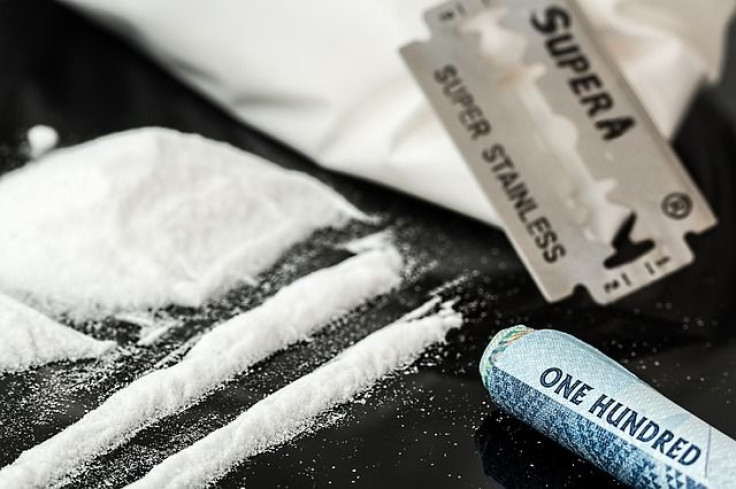Cocaine Addiction Causes 2016: This Brain Molecule May Drive Compulsive Drug Use

Snorted, smoked, or injected, cocaine quickly enters the bloodstream and the brain to help users achieve "the high." Cocaine addicts compulsively continue to take the drug even when they know it can cost them their jobs, possessions, loved ones, and even their lives, but why? A recent study published in Biological Psychiatry suggests a brain molecule is activated to trigger compulsive drug-seeking behavior, which leads to cocaine addiction.
Researchers at The Scripps Research Institute (TSRI) in La Jolla, Calif., found how hypocretin — a neurotransmitter located in the central amygdala — influences the brain's reaction to cocaine, nicotine, and opioids.
"In this study, we found that the neuropeptidergic hypocretin system is implicated in the compulsive-like cocaine-seeking through activation of the central amygdala, a part of the brain that is involved in stress and anxiety, and also plays a major role in sustaining cocaine addiction," Marisa Roberto, co-author of the study and professor in The Scripps Research Institute's Committee on the Neurobiology of Addictive Disorders told ALN Magazine.
Roberto and her colleagues sought to better understand the role of hypocretin in the central amygdala to see how the brain is influenced to crave cocaine, or go from occasional drug use to compulsive drug use. The researchers focused on the changes in the central amygdala since it’s linked to the negative emotions experienced during drug withdrawal.
In the animal model, one group of rats were given the option to unlimited access to cocaine for one hour a day, while the second group could self-administer cocaine for up to six hours a day. The first group’s conditions were similar to short-term drug use, and the second group’s conditions were what typically leads to cocaine addiction. In the second group, compulsive drug use led to increased levels of hypocretin, motivating a need for more cocaine.
Compulsive cocaine use triggers a dangerous cycle in the brain as cocaine sensitizes the brain’s hypothalamic hypocretin/orexin (HCRT) system — a network that sends signals between brain regions and has been shown to influence the brain’s reactions to cocaine, nicotine, alcohol and opioids, and the desire to relapse. A rise in hypocretin contributes to the overactivity in the central amygdala. This overactivity led rats to exhibit an anxiety-like state that appeared to trigger a cocaine craving.
“The rats escalate their daily intake as many human users would,” said Roberto, in The Scripps Research Institute news release.
To counteract the effects of addiction, researchers gave the rats an “antagonist” to block HCRT activity at one of the two HCRT receptors in the central amygdala. This helped reduce the rats’ drug-seeking behavior, suggesting a possible role for these compounds in treatments for addiction and relapse.
"Cocaine addiction is a worldwide disorder that affects millions of people, thus understanding the mechanisms underlying cocaine addiction is important to identify potential new pharmacological targets, such as the hypocretin receptors, for therapeutic strategies to be used in combination with behavioral therapies," said Roberto.
In a separate study published in the Journal of Neuroscience, researchers found that blocking the production of brain-derived neurotrophic factor (BDNF) — a protein that activates TrkB brain receptors — reduced cocaine-seeking behavior in rats. The team tested the effects of a newly developed compound called cyclotraxin-B — which can travel from the bloodstream to the brain to block TrkB receptors — on rats that learned to press a lever in order to self-administer cocaine. This led the rats to use significantly less cocaine, and press the lever fewer times. Moreover, the treated rats were less likely to relapse after a period of withdrawal.
Understanding what and how exactly hypocretin influences the brain’s response to cocaine, and using “antagonists” to reverse these effects can help researchers develop better interventions, and a possible cure for cocaine addiction.
Source: Schmeichel BE, Herman MA, Roberto M et al. Hypocretin Neurotransmission within the Central Amygdala Mediates Escalated Cocaine Self-Administration and Stress-induced Reinstatement in Rats. Biological Psychiatry. 2016.



























